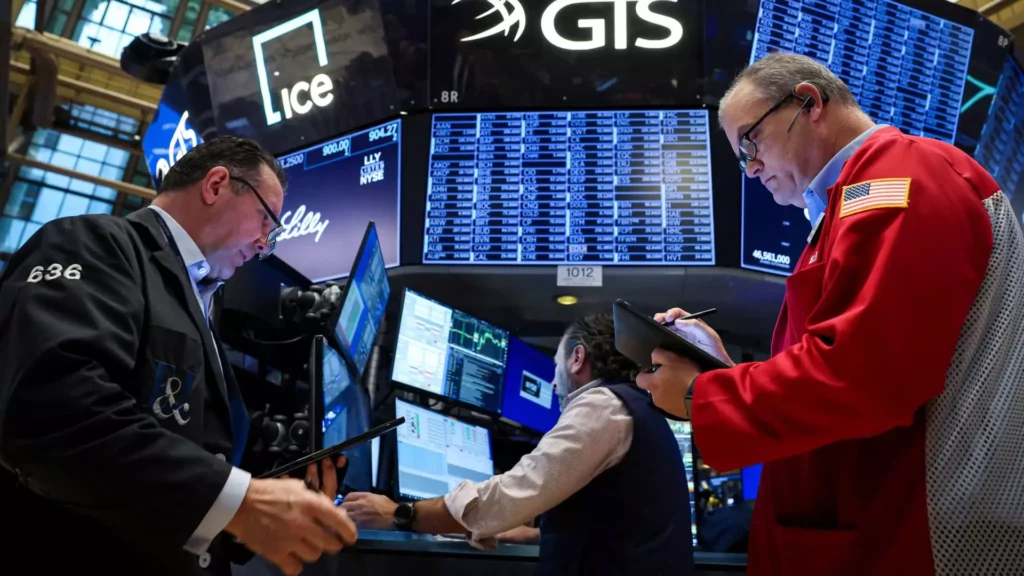As the U.S. presidential election approaches, a palpable tension is surfacing among investors, leading to notable fluctuations in market stability. With less than two weeks remaining before voters head to the polls, uncertainty reigns, affecting market sentiment. The recent trend indicates a significant downturn, highlighted by the Dow’s alarming drop of over 400 points in one day—its steepest decline since early December. Such volatility is not unusual during tumultuous election periods, as investor anxiety can manifest in sharp market fluctuations.
Jordan Jackson from J.P. Morgan Asset Management reflects on historical patterns during election cycles, suggesting that while pre-election anxiety often leads to market instability, there is typically a rebound as the year comes to a close. Interestingly, he notes that 72% of American investors currently express concern regarding the election, a statistic reflecting the prevailing fear that political outcomes may significantly influence financial markets. Understanding this historical context can provide reassurance: investors have a tendency to return to optimism as election results become clearer.
The Importance of Maintaining Composure
Given the turbulent atmosphere, Jackson advises investors to hold the line and remain calm. Impulsively reacting to market movements can lead to regrettable decisions. Jackson argues that the fundamentals underlying the market suggest a robust recovery is probable. Specifically, he points to anticipated interest rate cuts from the Federal Reserve, contingent upon the trends in inflation which appear to be stabilizing. With the Consumer Price Index (CPI) improving dramatically from a peak of 9.1% to 2.4% in a matter of months, the economic climate could shift in favor of growth.
Jackson expresses optimism regarding corporate fundamentals, which remain strong despite the noise surrounding election rhetoric. The underlying health of companies can often provide a buffer against short-term market volatility. While investors are cautioned against making rash sector bets based solely on political campaign statements, the potential for reaching all-time highs in the market looms large as we approach year-end. This optimism is not unwarranted; the market’s resilience is often correlated with the strength of earnings reports and corporate performance metrics.
Looking forward, Jackson emphasizes that consumer confidence may take longer to manifest despite current favorable indicators like rising wages and low unemployment. However, as consumers acclimate to changing economic conditions, a renewed sense of financial stability could catalyze increased spending. This anticipated shift could further fuel market momentum, making the post-election landscape more favorable.
While immediate concerns surrounding the upcoming U.S. presidential election are valid, history suggests that markets often rebound. By focusing on underlying economic fundamentals and maintaining a long-term perspective, investors can navigate the choppy waters of pre-election volatility with greater confidence.

